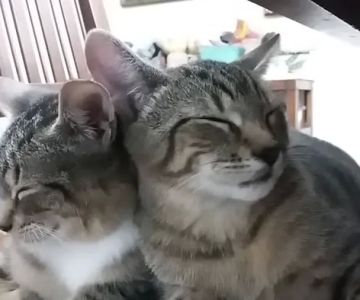Cat Meowing Excessively at Night: Causes and Solutions in 2025
- - 1. Understanding Why Cats Meow at Night
- - 2. Common Medical Reasons Behind Nighttime Meowing
- - 3. Behavioral and Environmental Triggers
- - 4. How to Calm a Cat That Won’t Stop Meowing
- - 5. Real-Life Case: From Sleepless Nights to Quiet Evenings
- - 6. Prevention Tips for Long-Term Peace
1. Understanding Why Cats Meow at Night
For many cat owners, a peaceful night can be interrupted by a feline friend loudly demanding attention. While some meowing is normal, excessive nighttime vocalization can signal an underlying issue. In 2025, veterinarians and animal behaviorists agree that pinpointing the cause is key to finding the right solution. Whether it’s hunger, boredom, or medical concerns, understanding your cat’s needs can help restore quiet to your home.
2. Common Medical Reasons Behind Nighttime Meowing
Health issues are a major factor in cats meowing excessively at night. Hyperthyroidism, kidney disease, or cognitive dysfunction in older cats can cause restlessness and vocalization. A thorough vet check-up is essential to rule out such problems. For instance, a 10-year-old Siamese named Bella was waking her owner at 2 a.m. every night. Tests revealed early kidney disease, and after treatment, Bella’s nightly serenades stopped almost entirely.
3. Behavioral and Environmental Triggers
Cats are naturally more active during dawn and dusk. However, boredom, loneliness, or changes in their environment can make them vocal at night. A new pet in the home, relocation, or even a change in feeding schedule can disrupt their routine. In multi-cat households, competition or tension can also spark excessive meowing after dark.
3.1 The Role of Attention-Seeking
Some cats quickly learn that meowing gets a reaction—whether it’s food, play, or simply your voice. While it may feel loving to respond right away, this can unintentionally reinforce the behavior, leading to more nighttime noise.
4. How to Calm a Cat That Won’t Stop Meowing
Addressing nighttime meowing involves a combination of environmental enrichment, structured feeding times, and sometimes medical treatment. Interactive play sessions before bedtime can tire your cat out, while automatic feeders can dispense small meals overnight to keep hunger at bay.
4.1 Creating a Peaceful Sleep Environment
Ensure your cat has a comfortable sleeping space away from disturbances. Soft bedding, familiar scents, and a quiet location can encourage them to settle down during the night.
5. Real-Life Case: From Sleepless Nights to Quiet Evenings
One owner in Chicago shared how her young rescue cat, Milo, would start meowing every night around 1 a.m. After consulting Hidden Brook Veterinary, she learned Milo was under-stimulated during the day. By adding puzzle feeders, extra play sessions, and a strict bedtime routine, Milo’s nighttime noise stopped within a few weeks.
6. Prevention Tips for Long-Term Peace
Consistency is the key. Avoid feeding or playing with your cat when they meow at night, as it reinforces the habit. Keep a structured schedule for meals and playtime, and ensure your cat gets adequate stimulation during the day.
For ongoing issues, a veterinarian can help determine if a medical or behavioral specialist is needed. With patience and the right strategies, most cats can learn to stay quiet through the night, allowing both pet and owner to rest peacefully.












